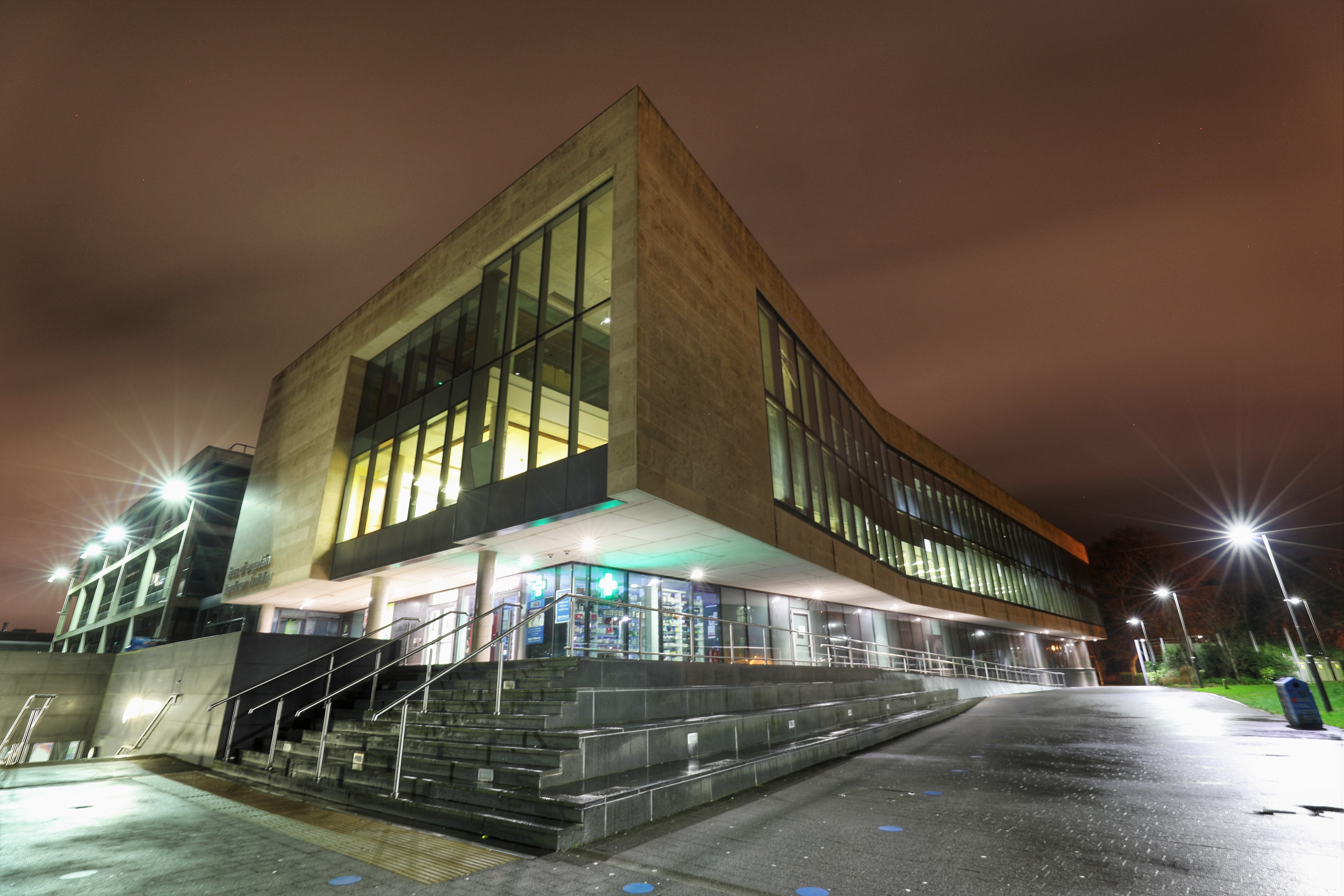
NUI Galway is well on the way to transforming its Library building into a Learning Commons. This article describes the vision and ambition for that project, showing how the transformed building will embody the possibilities and challenges of artificial intelligence (AI) in its operation. It highlights some unique contributions that libraries can make to promoting digital creativity while also ensuring awareness of the ethical dilemmas surrounding AI.

The Learning Commons as a Creative Hub
The current University strategy envisages “A new Library, incorporating a Learning Commons that encourages and supports new forms of learning and engagement”. An ambitious building transformation project will realise an inspirational, welcoming, high-tech space of learning and creativity, embodying our campus as a community built around knowledge.
A vibrant intellectual and social forum for the campus community, the transformed Library will provide access to the latest learning technologies, a gateway to the world’s knowledge through its rich collections, and expert staff help.
This dynamic environment will bring diverse people and disciplines together and will facilitate interaction, discovery, innovation, and new partnerships. It will be a “go-to” place of exciting possibilities for students and staff, a space that is bright, attractive, appealing and makes learning truly enjoyable.
This new facility, currently at the advanced-planning stage, will take account of changes in the learning environment, notably a focus on teamwork and increasingly autonomous student engagement beyond the lecture venue. Enabling digital creativity will be a priority, recognising that libraries are now places which emphasise knowledge creation every bit as much as information consumption.
Creativity extends to making physical objects: the transformed building will include a Makerspace with 3-D printing and a range of other fabrication technologies, supporting programming and the use of virtual or augmented reality.
This space will sit alongside a Digital Scholarship Centre with interactive video walls and high-specification computing facilities for the mining, manipulation and visualisation of vast quantities of data.
AI Deployment and Debate
Students will have many opportunities to put artificial intelligence techniques and technologies into practice in the Learning Commons. Just as importantly, they will be able to combine creativity with collaboration, also identified as a key skill for the Fourth Industrial Revolution by Bryan Penprase who believes that “students who are capable of creative insights, collaborating in diverse teams, and navigating through global cultural differences will be at an advantage”.
The vision for the NUI Galway Learning Commons foregrounds community building and collaborative engagement across disciplines, maximising technological and intellectual resources in order to address challenges which exceed the capacity of any one discipline, for example climate change, sustainability and disease control. Such challenges are central to the United Nations Sustainable Development Goals.
The neutral space of libraries makes them ideal locations not only for collaborative endeavour but also for debate and dialogue across multiple dimensions of any subject. For AI, this is important in opening up opportunities for engagement with ethical as well as technological issues. It is notable that the University of Rhode Island has located its AI Lab in the library to promote active discussion of social issues, thereby complementing the technological focus already in place and helping to achieve a balanced perspective.
Robotic technology will underpin the operation of the transformed Library at NUI Galway. Access to the majority of its printed collection will be via an automated storage and retrieval system which will facilitate a more flexible use of available space while enabling books to be available within 15 minutes of request. A robot, or Bookbot, will manage access to more than 400,000 compactly stored volumes. The Bookbot will literally do the heavy lifting and will not require books to be co-located by subject to find the right volume quickly.
Training students and researchers in data literacy is likely to be a vital Library function, especially in ensuring full awareness of data sharing issues and ways to manage personal privacy in an AI environment. Library staff will play an important part in providing a necessary human interface between users and the technologies available to them, facilitating their use for academic endeavour and daily life. They will act as guides for how AI might be harnessed for scholarly work in potentially transformative ways, including text and data mining, automation of some aspects of peer review for publications, and the use of personalised recommendation systems to navigate the published literature. Other AI-related roles for Library staff might include maximising access to machine-readable collections, curating datasets, and monitoring data quality.
Ethical Dilemmas
AI promises not just new types of activity in the Learning Commons at NUI Galway but also advances in Library services. For example, information retrieval may be more powerful, combining many previously disconnected sources through semantic connections and making “intelligent” decisions regarding user needs. The effort of cataloguing and classifying books and other information resources could be greatly reduced through automatic generation of metadata and assignment of subject headings. This could open up new possibilities for Library staff and users alike, changing how staff time is deployed and enabling new forms of learning and research. There are, however, significant ethical dilemmas for the library profession whose core values place a high premium on access to unbiased information.
Freedom from bias implies a level of judgement which until now has been founded primarily on human intervention. There is a concern that if machines are in charge of decisions about how publications are categorised by subject and what information is presented to any individual user, the risk of bias will increase. Neutrality will be at the mercy of algorithms and how they are programmed and weighted, with potentially negative consequences for equality, diversity and inclusion. AI could change the nature of what a library is, what roles it performs (or no longer performs), what people expect of it and who uses it, with machines as well as humans among the clientele for its collections. Library staff will need to stay close to AI technologies as they emerge and to engage actively with the vendors and other parties developing them.
Conclusion
AI and the Learning Commons at NUI Galway will be closely intertwined. The potential to enrich the learning experience is huge and the transformed building will encourage digital creativity and practical engagement with emerging technologies. The Learning Commons will, however, also counter any uncritical acceptance of AI. It will act as a forum for debate and dialogue around ethical issues. The human dimension will be paramount, with Library staff playing a central part in taking on new roles but also as a values-based profession in helping to mediate the ethical application of AI in higher education.
Profiles

University Librarian, NUI Galway